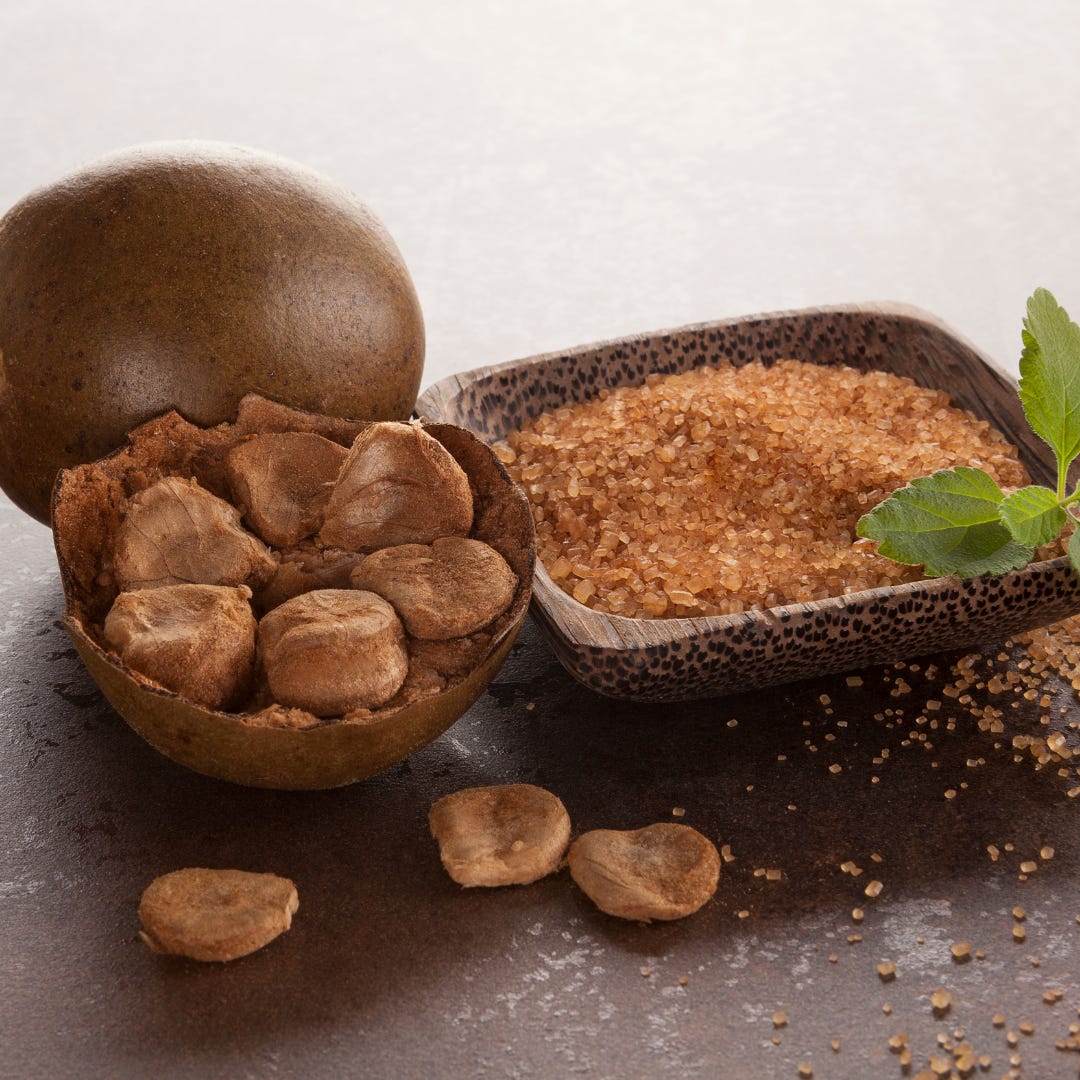
Is Monk Fruit Sweetener Safe?
What does research say?
Be it for any festival or making a dessert choice, it's difficult for most people to say no to tasty sweet delicacies. Yet, sugar is addicting. Even a few spoonful’s of sugar, is enough to cause gut inflammation.
Sweeteners seem a good sugar substitute. They are made up of diverse substances that give any food and drink a sweet flavour. However, sweeteners are metabolized and digested by every person in different ways.
A new popular sugar replacement that has gained quite a prominence these days is monk fruit sugar…
The monk fruit, also known as Lo Han Guo, is a small green/ brown melon that originated in southern China and was called after the monks who first grew it centuries ago.
It belongs to the same family as pumpkin and melon gourds. For decades, Traditional Chinese Medicine (TCM) has recognized the health advantages of the fruit. As a result, eastern nations use it for various therapeutic purposes like curing digestive disorders and the common cold.
Monk fruit sweetener is created from its dried fruit extract. So it is still processed and deprived of fibre, unlike the fruit itself.
Monk fruit extract is 150 to 250 times sweeter than table sugar. Its sweetness comes from the antioxidants present in the fruit itself. It also contains no calories, thus, no carbs.
What does research say…
According to evaluations in Chinese natural medicine journals, monk fruit has been found to have anti-coughing, anti-asthmatic, anti-oxidation, liver-protection, blood sugar lowering, immune-regulation, and anti-cancer properties.
But very few human studies were conducted to determine the benefits of monk sugar as a healthier alternative to sugar. Let’s look at one such study.
Examining the effectiveness of natural sweeteners, a randomized trial took place where people drank an aspartame-sweetened beverage versus monk fruit-sweetened, versus stevia, versus table sugar. Then they examined their blood sugar levels for 24 hours. The researchers compared the effects of sucrose (65 g) and NNS (non- nutritive sweetener) on caloric intake, blood glucose, and insulin responses.
They found that there was no difference in energy consumption between any of the NNS.
Conclusion:
Although the US Food and Drug Administration designated monk fruit as "generally recognized as safe," its benefits (or long term harm) is still unknown. According to current available studies, artificial and natural sweeteners were both equally as bad for calorie consumption, blood glucose, and insulin surges.
Therefore, although there have been no known adverse effects of monk fruit sugar, it is safer to limit your consumption to extremely controlled amounts. In the long run, they might not have been so healthy.
Trust this helps,
Let's Just Talk. No Obligations.
I do free consultations every Tuesday's and Thursday's. Either way you will get some actionable tips to reach your fitness goals faster.



Leave a comment